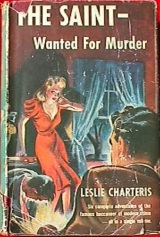Ring a Ding Ding
Bette Davis played a wide variety of parts, but I typically think of her in strong, sometimes ruthless, often bitchy roles. Dark Victory, however, puts Davis in a very sympathetic persona. I think this movie is generally listed among Davis’ best work. It ranks among her many Oscar nominations that failed to come to fruition and on the whole received a Best Picture nod. It was 1939, however, the magnificent year that featured Gone With the Wind; Goodbye, Mr. Chips; Love Affair; Mr. Smith Goes to Washington and Ninotchka.
Nevertheless, Davis gives a grand performance as the young woman afflicted by a brain tumor. The film commences with Davis as Judy Traherne, a Long Island socialite, who essentially crashes her horse through a fence when the jump before her is blurred by double vision. Her headaches and dizzy spells lead her family doctor to drag her to brain surgeon Frederick Steele, played by George Brent. The man is attempting to leave town for Vermont within the hour when Judy arrives, but burns on her fingers and tests on the nerves of her hands convince the doctor to stay in town. He eventually informs the woman she has a brain tumor, so he operates. The mass is malignant and is sure to recur, so although Judy will seem fine, she has a mere 10 months to live. Her vision will fade just hours before her death but no other symptoms will present themselves.
Although Frederick reveals this news to Judy’s best friend/secretary Ann, played by Geraldine Fitzgerald, the two agree not to tell Judy. By now, however, the dying woman is in love with her surgeon who seems to return the affection. They plan to move to Vermont, but on the day of the move Judy stumbles upon her case file, which is littered with doctor opinions declaring her case as “Prognosis: Negative”. Her anger leads her to drop Frederick, be angry with Ann and live her life in the most reckless manner possible, such as by getting boozed up before a horse jumping competition. She eventually resigns herself to her fate and decides not to finish her life so recklessly. She agrees to marry Frederick and they move to Vermont.
Judy is meant to be 23 years old, and although Davis is fairly young (31), I do not think she ever really looked that age. Her clothes and manner are too sophisticated, however, her behavior bears fruit in that regard. At the outset of the film, Davis is so energetic –fast talking and moving– like a child. When conversing with Brent during their first scene together, Davis conveys the character’s agitation with this quick pace and by squeezing and twisting her hands in her lap. Later, Judy becomes thoroughly matured by the horrid destiny that awaits her. In Vermont, she behaves as a conservative, loving wife. She is much calmer and graceful.
The final sequence when Judy’s vision fails and she prepares for the end is really a gut-wrenching experience. I think the reason Dark Victory grabs so many people is because of the utter bravery with which Judy takes on her end. Just thinking of those scenes now have me a bit choked up. She sends her husband away unaware of what’s happening because she wants him to be proud that she faced death on her own. She gives final hugs to her dogs and tells the housekeeper she does not want to be disturbed before laying in bed. Davis also does a great blind-woman performance. Although Judy is really good at hiding her malady from her husband (she moves from his dresser to suitcase repeatedly, packing clothes for him), Davis consistently has the blank, slightly downward stare typically associated with blind performances. That cannot be an easy task: portraying blindness while pretending to see.
Brent, on the other hand, slightly disappoints in his performance. He seems to convey no emotions ever in the picture, which makes it difficult to surmise whether Frederick actually loves Judy or is just trying to make her happy before she dies. I have not paid much attention to Brent in the movies of his I have seen, but I feel like this might be a common complaint. He is quite handsome and can be romantic, but his performances otherwise do not thrill me. Davis and Brent started an affair during Dark Victory that allegedly lasted several years until, when asked by a reporter to name the most glamorous women in Hollywood, he provided a list absent his lover.
I should mention that Humphrey Bogart also appears in Dark Victory as the horse trainer that cares for Judy’s favorite race horse. He affects a slightly Irish accent in what seems like a rather small role for the actor who had already appeared in 28 films. Ronald Reagan also participates as a perpetually drunk party friend. On a side note, I opted to use the Italian poster above for this post because it was pretty cool looking and I could not find an English-language one that was not a recent design. Besides, Italian movie posters are always cooler than the American counterpart.
Source: Bette & Joan: The Divine Feud by Shaun Considine
Filed under: Drama, Romance | Tagged: Bette Davis, Edmund Goulding, George Brent, Geraldine Fitzgerald, Humphrey Bogart, Ring a Ding Ding, Ronald Reagan |













George Brent was suited for one role: Wooden Indian.